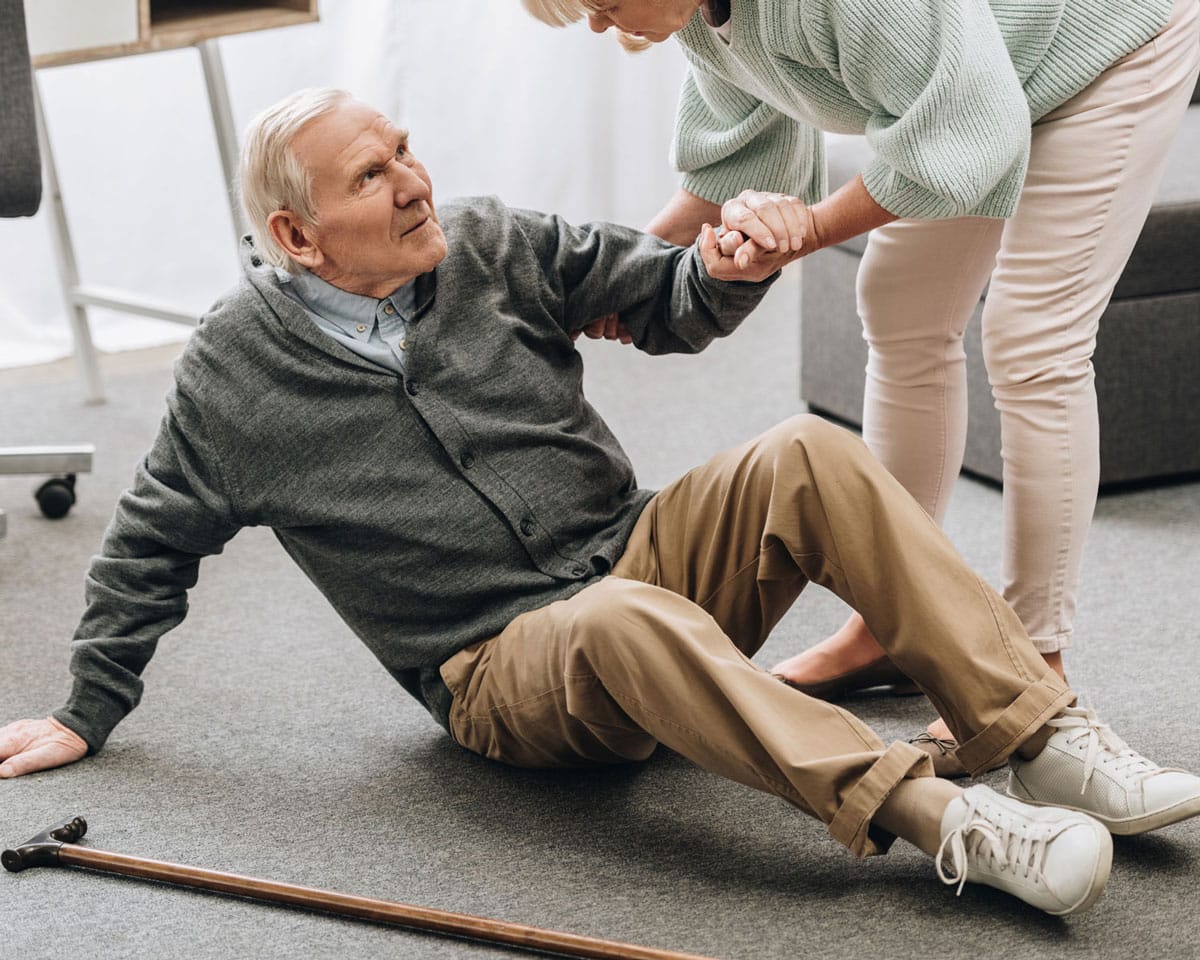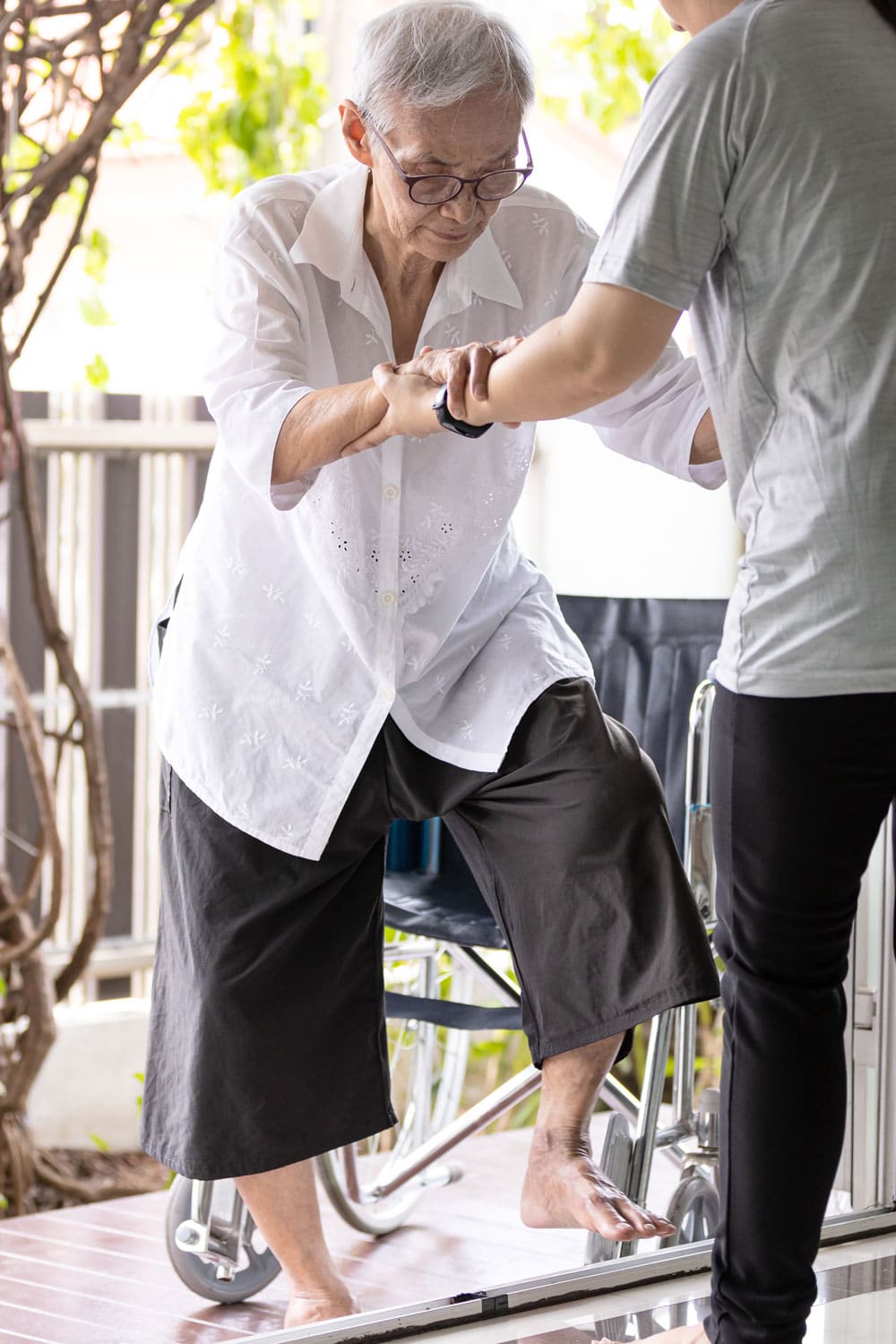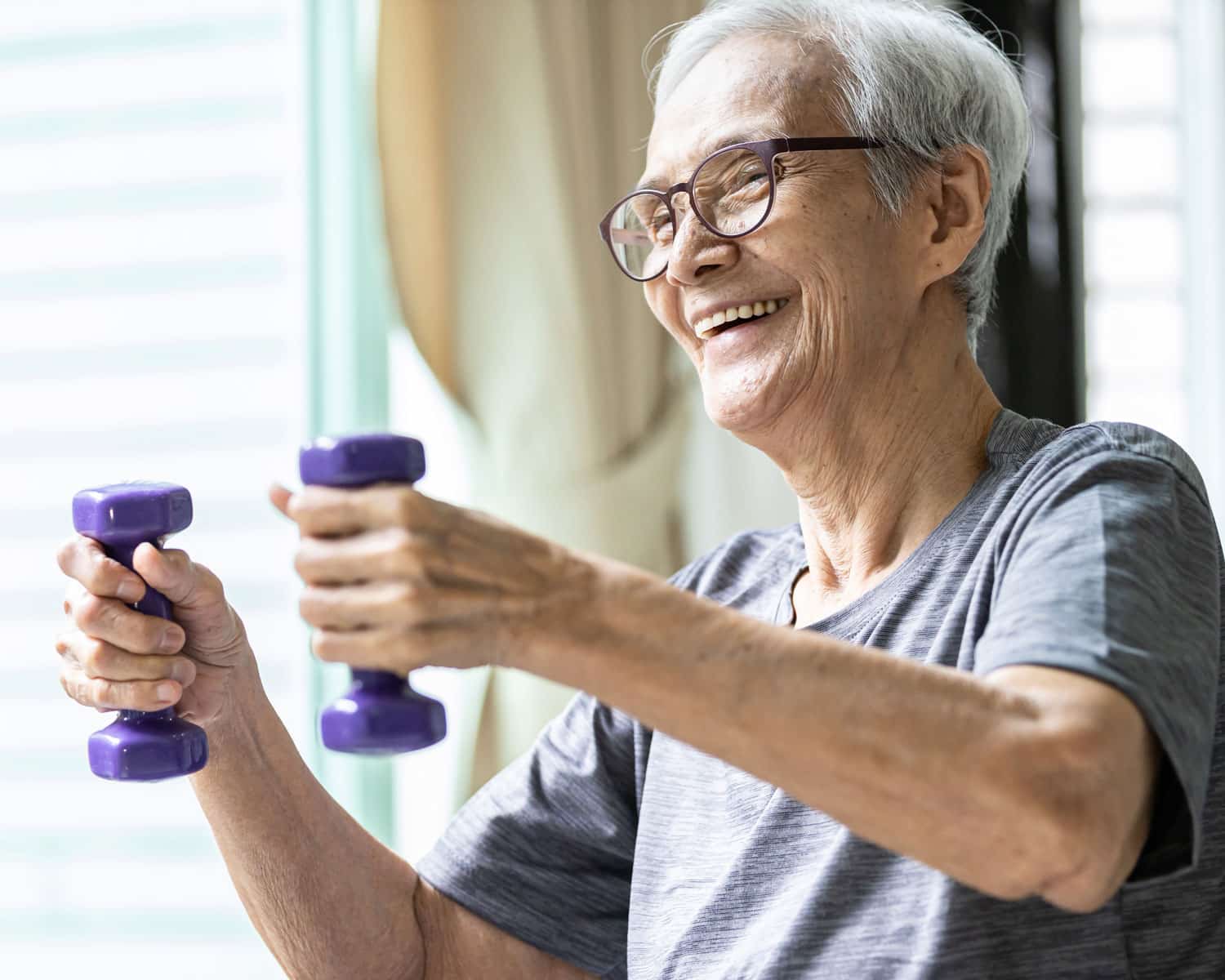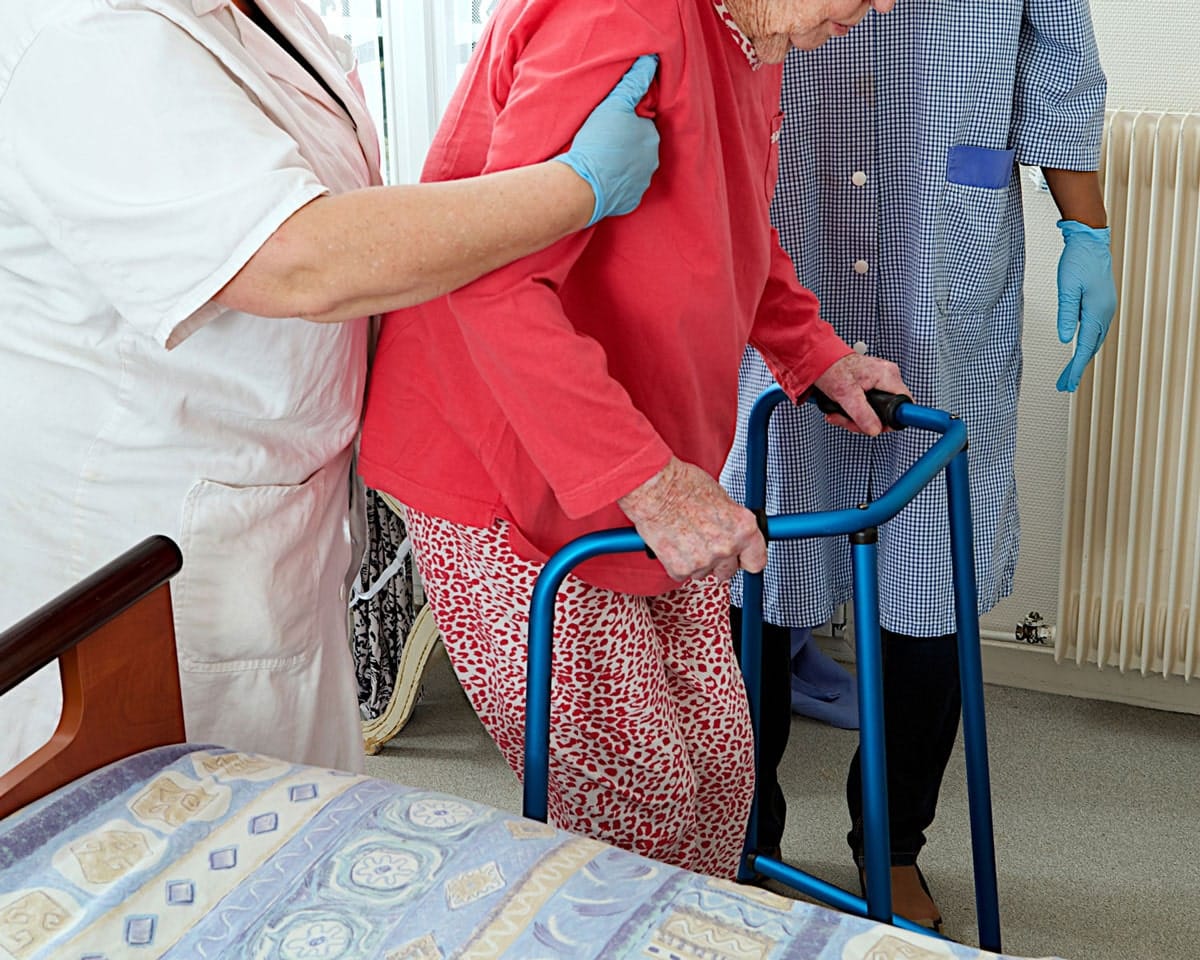
One of the most common worries families have regarding their older loved ones is a potential fall. The concern is warranted, with an estimated 36 million falls reported annually among older adults, resulting in an estimated 32,000 deaths. If you are concerned about your loved one losing their balance and falling, take action early to help lower their risk of falling in their home. At Dignity, we offer a comprehensive fall prevention and balance program that provides proactive balance exercises for seniors as well as rehabilitation following a fall. Your loved one can complete these physical therapy appointments and exercises in the comfort of their own home.
The Importance of Balance and Coordination as Your Loved One Ages
Staying balanced while walking is a critical skill many take for granted. For older adults, walking and staying balanced can get challenging the more you age. Because some senior citizens experience health conditions that cause imbalance, providing ways for your loved one to maintain their balance and coordination is critical.
While it can be easily overlooked, balance and coordination are two skills we use daily. Getting out of bed, stepping out of the shower, and walking up and down stairs are everyday skills that rely on our balance and coordination. Balancing exercises for seniors can also help your loved one get better sleep, have faster reaction times, build stronger bones, and develop better coordination. Maintaining balance and coordination helps your loved one maintain independent living and improves their daily lives.

Conditions That Can Impact Balance
Unfortunately, many mental and physical conditions can impact a loved one’s ability to maintain balance. Home health services such as Dignity work to recognize why a loved one is losing their balance and provide balance exercises for seniors to help mitigate the risk of falling.
Some common conditions or situations that impact a loved one’s ability to maintain balance include:
Vertigo
Fluid buildup, swelling, or an ear infection can cause vertigo. Because your inner ear helps with balance, issues with the inner ear can cause vertigo, also known as the issue of losing balance frequently.
Medication Side Effects
Some medications can cause issues with balance, such as antidepressants or those that manage blood pressure.
Chronic Conditions
Chronic conditions such as chronic high blood pressure, thyroid disorders, arthritis, heart disease, and Alzheimer’s disease can lead to the loss of balance and coordination.
Hearing Loss
Changes within the inner ear are directly linked to an adult’s ability to stay balanced. Unfortunately, age-related hearing loss contributes to the loss of balance and control in older adults.
Neurological Conditions
Neurological conditions such as multiple sclerosis and Parkinson’s disease put the elderly at a higher risk of losing their balance.
Lack of Circulation
If the body is inefficient at pumping blood, overall circulation can be slowed. Slow circulation means that oxygen doesn’t travel as quickly to your organs, brain, and muscles, which may lead to a loss of balance.
Low Blood Sugar and Iron Levels
Dizziness can directly result from low blood sugar, leading to loss of balance. Low iron levels can also directly contribute because iron carries oxygen throughout the body. When oxygen levels are low because of low iron, it can also cause balance issues.

How Physical Therapy Can Help Prevent a Fall or Improve Recovery
Physical therapists play a critical role in helping the elderly build their confidence and ability to perform daily functional activities by providing fall prevention for elderly patients. This is achieved by analyzing what could be contributing to the loss of balance and coordination. Then our physical therapists apply evidence-based practices to achieve high-quality care that will be effective. A fall reduction program, including balance exercises for seniors, helps your loved one build momentum in their abilities, strengthen leg and core muscles, and improve reflexes.
The home health program at Dignity provides an exceptional fall prevention and balance program. Once your loved one signs up for our services, an assessment is performed, and we comprise a balance program customized for your loved one. Our expert care in your home will empower your loved one to be stronger, stay safe in their surroundings, and be aware of any risks in their immediate environment.
Signs It’s Time to Seek Out Fall Prevention Care
If you are an older adult or have a loved one who’s elderly, it’s critical to watch for signs that you may be losing your balance and take action on those signs. Experiencing dizziness or lightheadedness, having weak leg muscles or foot problems, or expressing a fear of falling are all signs you should seek out balance care for your loved one.
Additionally, if your loved one is experiencing hearing or memory loss, you may want to have them assessed for physical therapy to improve their balance. It’s also important to watch for staggering or unsteady movements while walking. Lastly, speak with your loved one about the importance of recognizing any changes in their health and getting help when needed. Some of the first warning signs of the loss of balance are more easily noticed by the person who experiences them.

